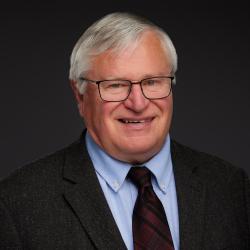“The line between our work lives and personal lives has blurred,” observes the authors of Religion in a Changing Workplace. “Religious employees in the United States—in all types of occupations and sectors—feel more comfortable expressing their faith in the workplace and less comfortable leaving their faith behind when they go to work.”
This poses a host of challenges for both religious employees and their employers, with the potential for workplace conflicts, discrimination complaints, and legal disputes. And yet research shows that openness to religion in the workplace can also reduce stress, help employees cope with problems, and increase productivity.
Elaine Howard Ecklund (a sociologist at Rice), Denise Daniels (a business professor at Wheaton), and Christopher P. Scheitle (a sociologist at the University of West Virginia) have undertaken a massive study of religious issues in the workplace. They surveyed some 15,000 workers and conducted hundreds of interviews to define exactly what those issues are and how best to navigate them.
This project was conducted under the shadow of Diversity, Equity, and Inclusion (DEI) mandates. The Civil Rights Act of 1968 included religion as one of the protected categories, yet, say the authors, it may be “the neglected dimension of diversity.” Workers and their employers often do not realize that discrimination on the basis of religion is illegal. And DEI training workshops typically do not bring up religion at all. This book gives suggestions on how companies can address such issues in a positive way.
With the Trump “vibe shift,” companies have been eagerly abandoning their DEI initiatives, but the book gives useful information about the different types of religious expression (verbal, prayer, symbols) and the various attitudes toward them. Most notable, though, are its findings about how religious workers think about their jobs. This may therefore be the first large-scale study to give us empirical, quantitative data about the doctrine of vocation.
The authors cite previous research sorting out how people view their work: as a “job” (that is, as simply a practical necessity to earn a living); as a “career” (satisfying personal ambitions); or as a “calling” (personally fulfilling because it serves a higher purpose and makes a difference in the world).
The current study, however, finds that 20% of American workers see what they do as a “spiritual calling.” This is true of 38% of evangelical Protestants, 23% of mainline Protestants, and 18% of Catholics. Of the “very religious,” 44% have this sense of calling, while 22% of the “moderately religious” and only 8% of the “not religious” do.
Of those who have a sense of calling, 53% are “very satisfied” in their work, compared with 39% who don’t. Of those who consider their work to be a calling, 61% say their faith helps them find meaning and purpose in their daily tasks, compared with 13% who don’t. Those who feel called also better coped with problems at work, experienced less stress, and found a higher purpose, “especially when facing work that is either extremely challenging or mundane.”
There are, of course, different understandings of “calling.” Muslims, who rank just behind evangelicals in the percentage who have a sense of “spiritual calling” at work, have the concept of zakat, or “obligation.” Jews have the concept of tikkun olam, meaning “repairing the world.” There is even a secular version of “calling” that dispenses with a “Caller,” holding to what psychologists describe as recognizing a “higher purpose in work” and “other-oriented values and goals.”
But the data show a clear correlation between calling and religious belief. The term “calling,” of course, in its Latinate form (vocare) is “vocation,” and Christians have a long tradition of understanding their lives in terms of what God has “called” them to do.
The key theologian of vocation is Martin Luther, who broadened the medieval notion of “having a vocation” in the sense of a call to join a religious order to all Christians and the whole scope of the Christian’s life in the world. “Instead of a calling to the monastery,” explain the authors, “German theologian Martin Luther taught that all people had a calling from God that was to be lived out in their ordinary lives—as spouses in marriage, as parents to their children, as neighbors in their communities, and in their daily labor, whether paid or unpaid.” Luther also stressed that vocation is not mainly about self-fulfillment or even serving God, except perhaps indirectly. Rather, vocation is primarily about loving and serving our neighbors. When we do that, we become instruments of God’s love, as He works through us to care for His creation.
Though the authors recognize Luther’s contribution, they spend most of their time on the version of vocation taught by John Calvin, who narrowed again what Luther broadened out. For Calvin, vocation mainly applies to the workplace. But their reading of Calvin is filtered through that of Max Weber and his 1905 book, The Protestant Ethic and the Spirit of Capitalism. Since Weber is the father of modern sociology, it is understandable that sociologists always defer to him. But he psychologizes religion in a very speculative way.
As our authors explain it:
The belief of predestination in Calvinism—that the fate of your soul is already determined by God regardless of your own actions—led believers to feel that the only way to know they were bound for heaven was to be as pious and hardworking as possible. In this view, work has a divine purpose, and whole-hearted devotion to their work became one way that Christians saw themselves glorifying God and demonstrating the surety of their own salvation. … A person served God and proved they were chosen by God to be called to the work they were doing by the amount of monetary success they had in the work as well as the social significance of the work, a concept that became known as the “Protestant work ethic.”
Now, I have known a number of Calvinists, both living (in my circle of acquaintances) and dead (as a specialist in 17th-century religious literature). Yet I have never known any who thought like this. Those who worried about whether they were of the elect would be encouraged to attend to their faith in Jesus, not scrutinize their works, much less their “monetary success”!
The researchers here do not seem to have asked the 15,000 respondents whether they consider making a lot of money to be a sign of their salvation. If they had, they might have found some agreement among the advocates of the “Prosperity Gospel,” but I doubt that even they would put it so baldly, and the mostly Pentecostal believers in that message are as distant from Calvinism as can be. Plus, they were not around to contribute to the origins of capitalism.
Be that as it may, the authors hold to Weber’s association between capitalism and vocation, saying that workers with a strong sense of calling tend to take an individualistic approach to injustices at work, rather than striving for “systemic” change. In a discussion of how workers with a religious calling may be more easily exploited by their employers, they invoke the “German social theorist Karl Marx” and his notion that religion is the “opium of the people.”
The authors’ mountain of evidence, though, points in a very different direction. According to their findings, the most common verbal religious expression in the workplace is not proselytizing but attempts to offer some sort of spiritual support to a colleague in need. The most common expression of prayer in the workplace is not in the lunchroom or in support of some work-related task. Rather, it is in the context of caring for a fellow worker with a problem by saying, “I’ll pray for you.”
Religious workers we spoke to were most likely to intervene or speak up when unethical behavior affected someone for whom they were directly responsible. These workers would use their faith as a resource to step in and confront authority figures and structures, often based on a religious imperative to love and care for others.
In the section on what responders said about the meaning and purpose of their work, each of the types described involved helping others: “Products and services benefit others.” “Work provides money and skills to serve or help others outside of work (congregation and community).” “Worker feels like their skills put to good use.” “Work provides opportunity to serve coworkers and/or customers.”
All this supports Luther’s view of vocation, that the purpose of every calling—in the workplace, in marriage, in parenthood, in our citizenship, in the church—is to love and serve our neighbors.
Doubtless few of the 15,000 respondents know anything about Luther’s doctrine of vocation. They certainly do not offer prayers for their colleagues or stand up for them when they are mistreated because Luther told them to. Luther was simply describing how ordinary Christians, in fact, live out their faith in their ordinary callings.
It would not bother Luther at all that the nonreligious and followers of other religions can also have a sense of calling. God, in His providential care for all His creation, works through believers and nonbelievers alike, both of whom do pretty much the same tasks. The believers can do so in faith, while the nonbelievers need other motives. But God uses them all to create and care for new life (in family vocations), to order society (in political vocations), and to provide daily bread and other physical needs for everyone (in economic vocations).
The wealth of data gleaned by the authors of this book contains some surprises. Critics of the doctrine of vocation have been saying that the teaching supports highly paid professionals who can be expected to find their work meaningful and satisfying but has little to offer low-paid manual workers, whose labor is a painful, meaningless slog. But this research has found that while the top leaders of companies do often have a sense of calling, workers who make less money are more likely to see their work as a calling than those who make more!
Also, to use DEI language, “marginalized” groups tend to have a stronger sense of calling than “privileged” groups: 31% of black workers do compared with 18% of white workers; 24% of women, compared with 17% of men. Interestingly, black workers are also the most likely to feel motivated to talk about their faith at work (36%), compared with white workers (26%).
It’s often assumed that Christians must figure out what God is calling them to do, whereupon they must find a job that will allow them to do that. The researchers found that often the sense of calling comes after working someplace for a while. It follows that calling can be taught. That is to say, workers can be made aware of their callings. (This would be in accord with Luther’s insight that everyone has callings through which God acts, whether or not they realize it.)
Religion in a Changing Workplace closes with recommendations, one of which is for organizations to help develop a sense of calling in their employees: “Organizational leaders can foster a sense of calling among their workers by emphasizing the purpose and value of their work, reminding them how their work helps others, or focusing on how the organization contributes to the common good.” That would almost certainly be more welcome than a DEI seminar.

